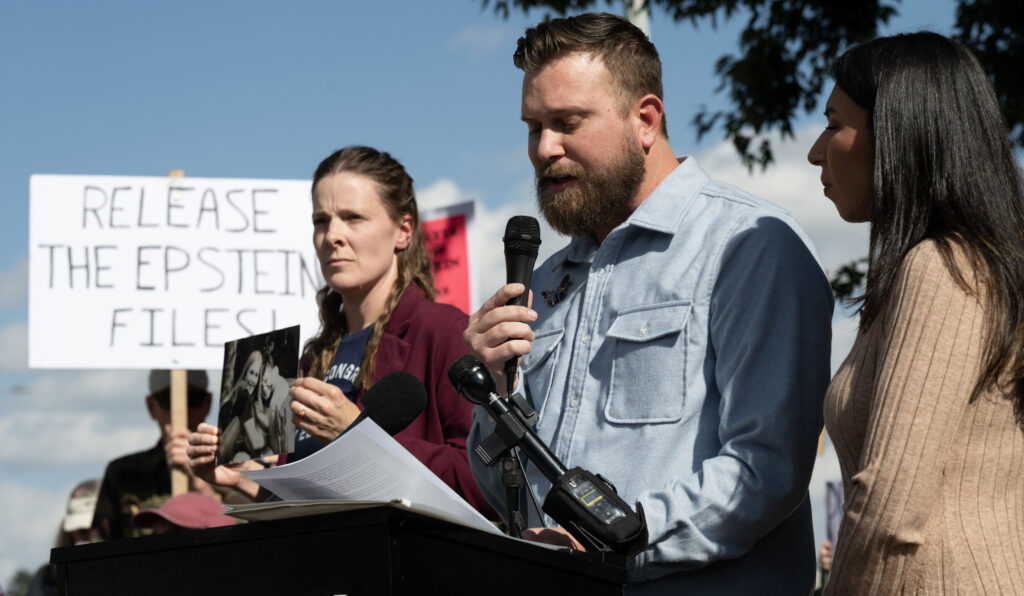Deportation imminent for decorated Army soldier with felony conviction
Jose Barco was given half an hour to gather his things.
After nearly five weeks in a U.S Immigration and Customs Enforcement processing center in Pearsall, Texas, the decorated Iraq War veteran began the journey of deportation to who-knows-where. All that the guards could tell him was that he was leaving the holding facility with 30 other Venezuelans.
On Wednesday afternoon, the once-proud Fort Carson soldier was just another deportee, a plastic bag in his hands. Inside were a change of clothes, his Venezuelan birth certificate and identification showing he was a parolee.
He had been convicted of attempted murder and sentenced to 50-plus years for firing into a crowd and hitting a pregnant woman.
He is not a citizen of the United States, though he applied for citizenship right after Independence Day, 2006, according to recently unearthed information from a United States Citizenship and Immigration Services report.
“On July 6, 2006, Mr. Barco filed an Application for Naturalization, Form N-400, with U.S. Citizenship and Immigration Services,” the report said.
It’s unclear if his paperwork was processed or approved, but he was told by the Army while he was in Baghdad where he served during the “surge” that his application was lost. Instead of giving the oath he prepared for, he could only watch as another soldier was sworn in as an American citizen to the applause and back-claps of his comrades.
Today, Barco is a man without a country.
“I’m not Venezuelan even though I was born in Venezuela. I’m not Cuban either because I wasn’t born in Cuba, but my parents are Cuban,” he said in what could be his last interview on U.S. soil. “I’ve lived in this country since I was 4 years old. But to them, I’m not an American. I don’t know what I am.”
Deportations underway
The first flight carrying Venezuelan immigrants deported from the United States landed in Venezuela early Monday after the two governments reached an agreement to resume repatriation flights.
The U.S. Bureau of Western Hemisphere Affairs said the flight departed from the U.S. and stopped in Honduras, where there was a change of planes.
“Today, deportation flights of Venezuelan illegal aliens to their homeland resumed via Honduras,” the department wrote on social media platform X.
“These individuals had no legal basis to remain in the United States. We expect a consistent flow of deportation flights to Venezuela going forward. Thank you to Honduran President Castro and her government for partnering to combat illegal immigration.”
Barco’s family and his band of Army brothers cringed to hear him described as an “illegal alien.”
“He never crossed the border illegally. Our family came to this country on asylum. He made a mistake and served his time,” said Veronica Barco, who sent a bus ticket to her brother and was waiting for him in Florida upon his release from prison when he was taken by ICE.
The “mistake” was his criminal conviction which happened not long after he returned to the U.S. after two tours in Iraq.
Since Jan. 21, 2025, the Barcos’ lives have been a series of unrealized hopes for a gubernatorial pardon, for medical help from Veterans Affairs for Barco’s weekly migraines and sleepless nights and for the national news to catch on to his plight.
Villain or hero?
Barco signed up with the Army at the age of 17 with a promise and expectation of American citizenship. He was a member of the U.S. Army’s 2nd Battalion, 12th Infantry Division — the subject of a documentary that detailed the trauma of the returning Iraq War-era soldiers who nicknamed themselves “Lethal Warriors.”
The battalion of 500 accounted for half of Fort Carson’s combat losses in Habbaniyah, a village between Fallujah and Ramadi in the heart of the Sunni Triangle for their first tour in 2004 and in Baghdad’s Dora neighborhood for the second, which lasted 15 months.
Barco was honorably discharged in 2008 and was diagnosed with PTSD and a Traumatic Brain Injury after two tours during some of the most violent battles of the Iraq War. Not long after his discharge, he was at a party in Colorado Springs when a fight broke out. He may have been startled before he shot into the crowd that night. He was sentenced to 52 years in prison.
After his sentence was reduced to 40 years, he was given parole in a hearing Aug. 8, 2024 — the first time he was eligible after serving 15 years.
Among the findings of the parole board: “Barco’s crime was the result of a combination of factors, including PTSD, traumatic brain injury, and the breakdown of his marriage after returning from deployment.”
Barco’s commander once said: “If you can pick and choose the details of Jose’s story, he could come out a villain or a hero.”
It was Col. Michael Hutchison who prepared Barco’s application for citizenship the old way — on hard copies — and sent them to the Department of the Army.
He described the young Purple Heart recipient as a soft-spoken 19-year-old fresh out of the hospital from treatment for third-degree burns after he lifted a flaming suicide vehicle off of two soldiers.
Hutchinson is among the crowd of Barco believers who have been writing letters to the Army and political representatives, putting money in his detainee phone account, hiring lawyers, and keeping each other sane through a social media chain.
His wife, Tia, has tracked him in her dreams, praying this day would never come.
Wednesday afternoon she was broke into a conversation she was having with a reporter to take a call from Barco.
“Hold on,” she texted. “Not good news.”
Nerve-wracking hours
He also called his sister, Veronica, who spent the rest of the afternoon checking her phone.
“The anxiety is nerve-wracking,” she said. “I am angry that they can treat another human being this way, cruelly moving them like cattle with no information.”
The afternoon before, Barco told The Denver Gazette in an interview from the South Texas ICE Processing Center that he’s spent long days listening to other detainees fight over television shows or argue about whose food gets the microwave. At 39 years old, he was the “old man” in the place. He laughed that he wished for the peace of “a padded room with a book and to be left alone.”
The book cart with Spanish choices rolls in every week or two and the days have been long.
As Barco spoke, an outburst of voices and banging interrupted the conversation.
He explained that the detainees were giving an exuberant farewell to a detainee who was leaving for Mexico. If he was in a normal circumstance, maybe he’d start a pool as to his next destination, which could change with each political discussion. Would it be Venezuela? Gitmo? Maybe El Salvador, or even Mexico?
The uncertainty of what the government had planned for him has been agonizing, as has the fact that the Texas ICE processing center — where he has been detained for more than a month — has exacerbated his ongoing PTSD because he’s afraid someone could hurt him in his sleep.
His only space is a bunk bed in a long room crammed so tightly with other beds that “you barely have room to walk through.”
Barco told his wife that another Venezuelan was sent to Mexico on Tuesday.
He dreams of a reunion with his 14-year-old daughter, whom he got to hold as a baby and last saw when she was 7.
“I owe her so much. I don’t know where I’m going to end up but I keep telling myself it’s going to get better,” he said Tuesday. “It can’t get much worse.”











